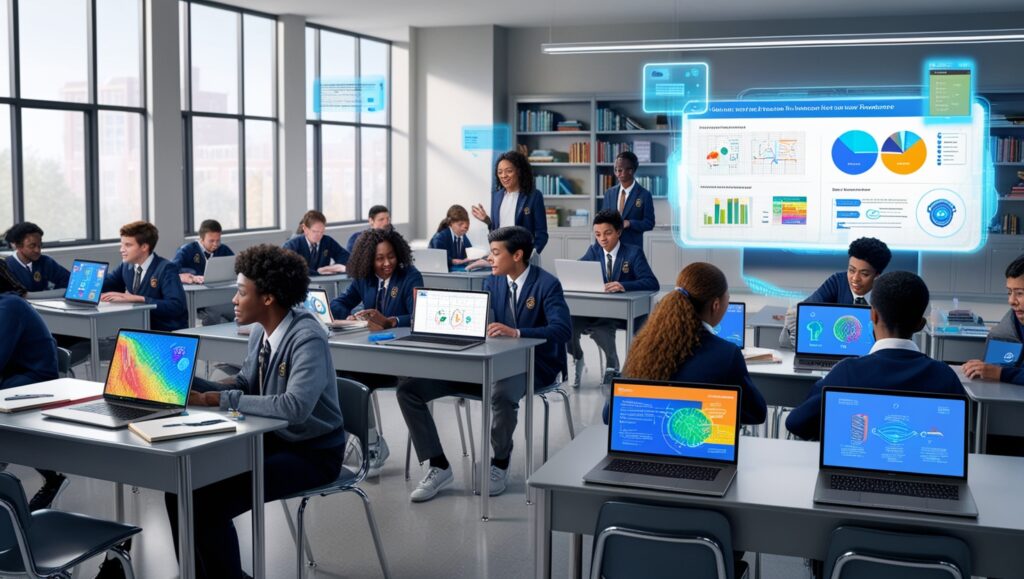To assist some students with test preparation, a London high school is substituting teachers with artificial intelligence (AI) tools like ChatGPT.
Starting in September, 20 students, approximately 15 years old, will participate in a pilot program at David Game College where they will employ AI technologies for a year before to sitting for their GCSE exams. The courses will cover computer science, biology, chemistry, mathematics, and English.
Students will gain a lot from AI-powered adaptive learning, which enables each student to learn at their own pace rather than having to keep up with a class that frequently progresses too quickly for some students and too slowly for others, John Dalton, coprincipal of the fee-paying school, told.
In addition, the students will receive individualized learning paths and support from three full-time learning coaches.
According to Dalton, pupils will be able to study a subject for longer periods of time until they fully understand it, and those who are ready to move on will be able to do it more rapidly. Asking queries of the AI-powered learning assistant that they might not feel comfortable asking a teacher in class could also be beneficial for the students.
According to him, they want to use the extra time this creates during the day to concentrate on topics like self-awareness, critical thinking, active citizenship, digital literacy, artistic expression, public speaking, and entrepreneurship in addition to teaching core subjects as effectively and efficiently as possible.
Some educators believe artificial intelligence (AI) has the potential to address issues including overworked teachers, growing class numbers, and a dearth of one-on-one interaction with students. Some believe it can have drawbacks.
promising instances
Artificial intelligence (AI) can be a useful addition to human teachers, but it cannot completely replace them, according to Higher Learning Group head Hadida Grabow.
Grabow stated that although there are some “promising examples” of tools, such as the AI teaching assistant at Khan Academy or Google’s Socratic, an AI-powered learning app for students that provides resources and explanations, they do not see anything that could take the position of a competent teacher.
Unfortunately, as evidenced by the widely publicized failure of the AI chatbot operated by the Los Angeles Unified School District, the technology is simply not there yet, she added.
In March of last year, the district implemented Ed, an AI chatbot, in select schools to assist with student data, grades, and assignment monitoring. However, the chatbot was put on hold after the business that developed it failed, about three months later.
AI systems can “hallucinate,” or make things up, according to Karl Knapp, head of the University of Indianapolis’ business school, and students are unlikely to “fact-check every utterance by the AI system.”
AI systems were also unable to interpret facial expressions or tone of voice, which he claimed were “key indicators of student understanding when teaching.”
Humanized learning
According to Dalton, students taking part in the pilot program will study a variety of subjects in the afternoons, including debate, business startup, entrepreneurship, artificial intelligence, financial literacy, and creative pursuits like painting and cooking.
He continued by saying that by establishing a comprehensive and interesting learning environment, the college has humanized the AI learning process. If they so choose, students and teachers can still communicate.
Students are not judged by the system. Rather, it gives students the freedom to learn in a secure setting at their own speed, according to Dalton. Additionally, they are certain that this method will boost their confidence as they grasp the material, which will benefit their mental well-being.








